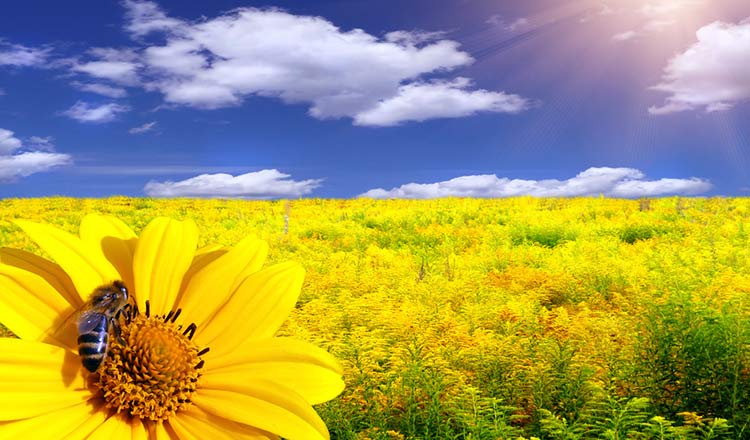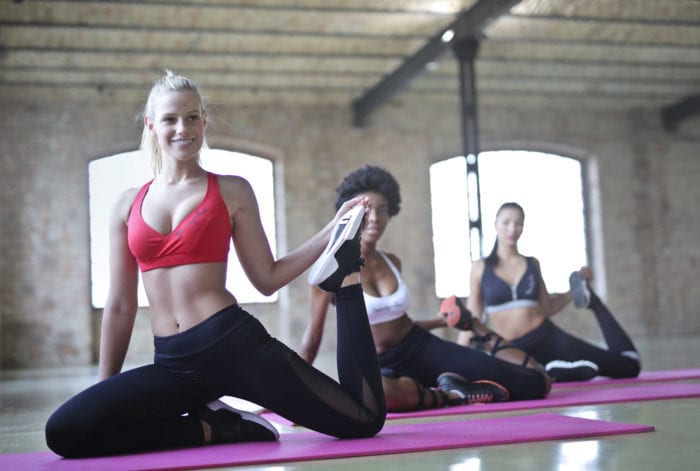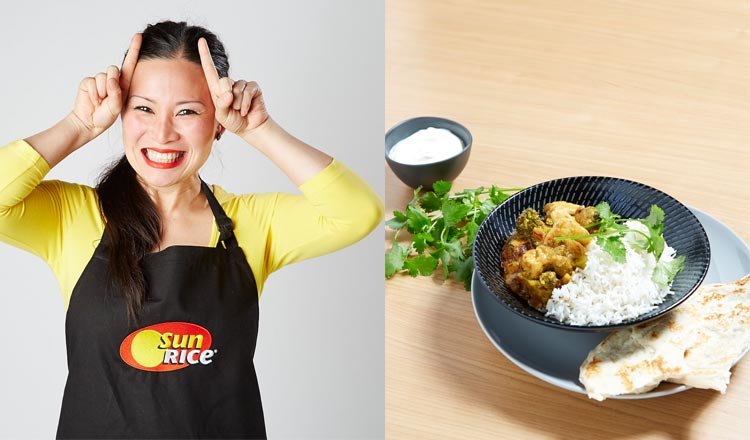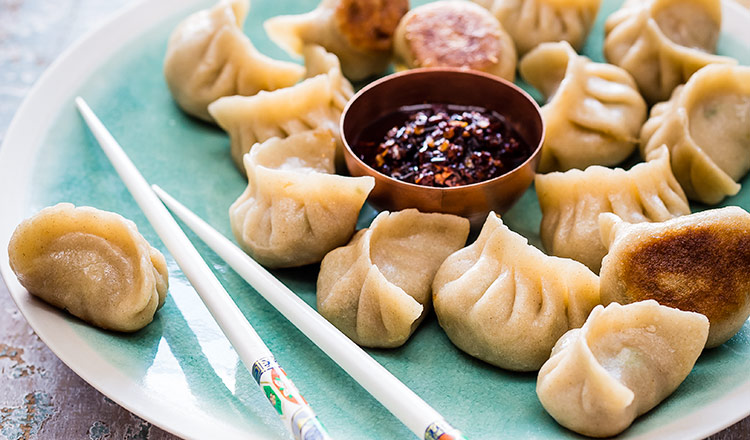Nutritionist Lyndi Cohen talks about why bees matter. Here, she shares her ideal day on a plate and talks about why the bees are essential to our quality of life. Lyndi is partnering with Burt’s Bees and the Wheen Bee Foundation to raise awareness for the bees.
1. Firstly, we keep hearing about bees dwindling numbers, what is making life tough for them?
Bees are facing a number of threats globally. Pests and diseases are proving to be a challenge for the little creatures, with viruses killing out large colonies all over the world. Logging and urban development also means that the bees’ habitats have been destroyed as well as bee keepers’ access to a lot of resources.1
2. Most people don’t have fond memories of bees, can you tell us why we should be concerned that they might be buzzing off?
Most people don’t realise that bee health is so important for our health. Bees are responsible for 30 percent of the food we eat, including a lot of beautiful fruit and vegetables. By pollinating crops, bees help produce the fresh foods we eat every day, ensuring we get the nutrients to thrive and be healthy.
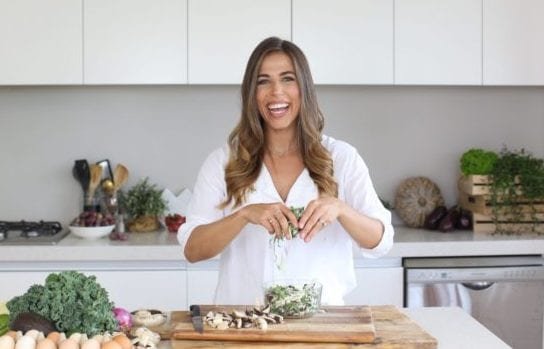
3. Describe your ideal day on a plate – how would this be impacted by a world without bees?
You can’t beat smashed avocado on toast for breakfast. It’s healthy, energising and delicious! Coffee is also a must in the morning.
A healthy salad bowl for lunch filled with brightly coloured veggies and a selection of seeds for a bit of crunch.
I’m a big fan of a 3pm snack, for this I usually reach for nuts or my healthy bliss balls to keep me going.
When it comes to dinner, I’m currently loving my Green Chicken Stir-fry for as it’s speedy and full of luscious greens such as broccolini (a great source of phytonutrients and antioxidants).
Last but not least, on these hot balmy evenings, I also love a little mango sorbet to cool down with – you actually can’t beat our Aussie mangoes!
Sadly, this entire day of grazing would be almost non-existent without bees. Avocado, coffee, almonds, mangoes and broccolini are just some of the main ingredients that rely on pollination.
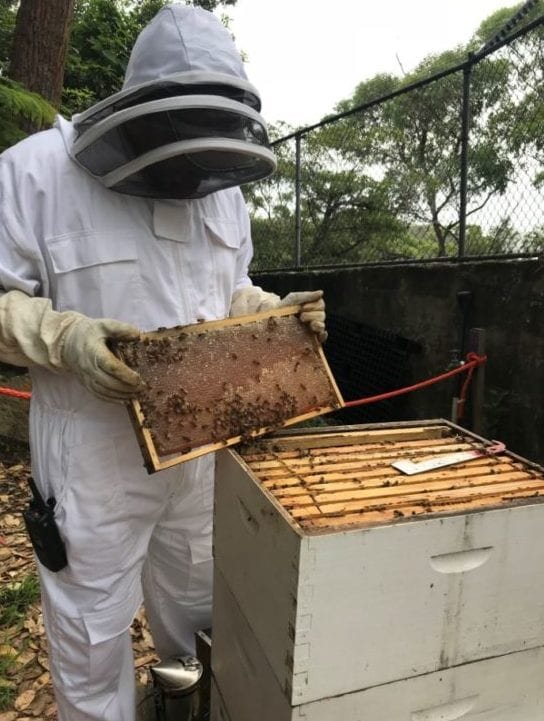
4. What are some things the average person can do to help out our yellow bellied friends?
1. Everyone can help the bees in a range of small ways such as planting flower borders with bee-friendly flowers and reducing the amount you mow your lawn.
2. You can buy local honey to help support your community of beekeepers and enthusiasts.
3. Choose to support companies, like Burt’s Bees, that care about the environment and the sustainability of the planet. For every limited edition strawberry lip balm sold, Burt’s Bees will donate $1 to the Wheen Bee Foundation, a not-for-profit organisation that promotes awareness of the importance of bees for food security, and raises funds for research that addresses the national and global threats to bees.
4. Just like us, bees get thirsty! Leave a little basin of water out for bees to drink from.
5. What would happen to our health without bees
We need healthy bees in order to eat a healthy diet. The key to a healthy diet is variety, and bees help pollinate a huge number of the fruits, vegetables, nuts and legumes.
Without bees, we would miss out on avocado, cashews and almonds, which provide us with incredible healthy fats. We’d also miss out on the vitamin C boost from cauliflower, strawberries, pumpkin and kiwi and citrus fruit that help to keep our immune system healthy and our skin glowing. The list is endless!
Bees also pollinate some of the worlds most essential and affordable food staples including carrots and potatoes, which means dwindling bee populations would affect those that have the least.
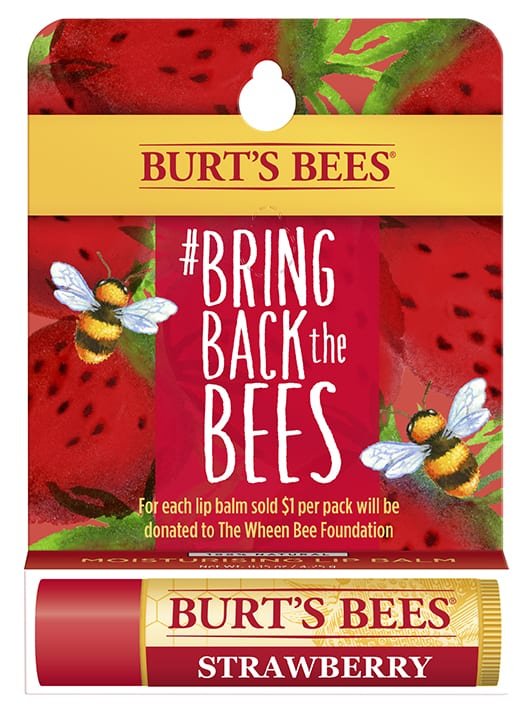
Check out Nude Nutritionist Lyndi Cohen’s honey inspired recipes to highlight a cause here:
Pistachio and honey crusted asparagus
The limited edition Burts Bees Strawberry Lip Balm is available from Priceline. for $6.99.


